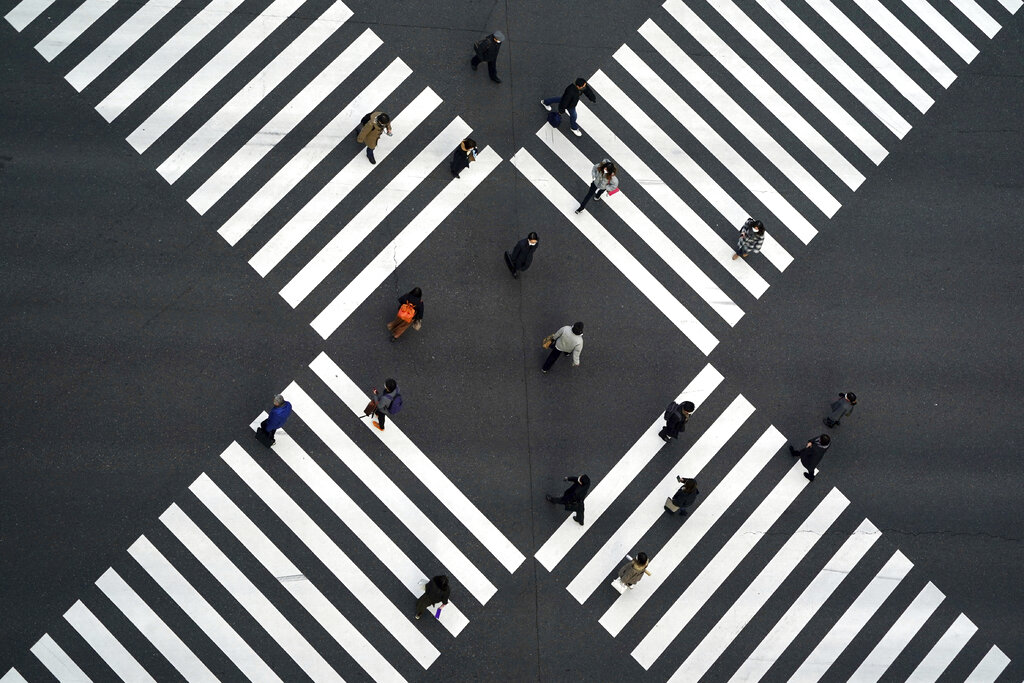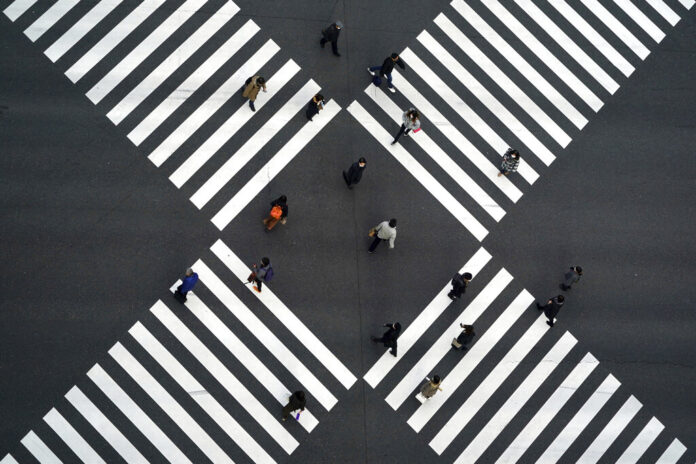
Fresh Covid-19 cases for the week ended June 6 were the lowest since mid-March, at 3 million, according to data from Johns Hopkins University. Weekly cases worldwide have been declining for six weeks as the outbreak in India is waning and global vaccination efforts ramp up.
The US reported the lowest number of daily cases—5,455—since March 2020, when the coronavirus began its rapid spread across the country.
The global death toll is also easing, falling from a peak of over 92,000 a week at the end of April to less than 80,000 in the last week of May. A drastic revision of Peru’s fatalities—the country more than doubled its official Covid death count—skews comparisons for the latest week.
Despite the trend, rising cases in places from Fiji to the UK are a reminder that the pandemic isn’t disappearing anytime soon. The UK’s Health Secretary said it’s too early to say whether a planned loosening of rules on June 21 can go ahead.
Key developments:
Taiwan to extend soft lockdown
Taiwan’s government decided to extend an island-wide soft lockdown by another two weeks, the Cabinet said in a statement on its website. Taiwan has had 11,298 confirmed cases as of Sunday, including 10,100 local cases and 260 deaths, according to a separate statement from Taiwan Centers for Disease Control.
Hong Kong vaccinations accelerate
Hong Kong’s vaccination rate picked up last week, with a record 31,400 people receiving their first doses on Saturday. The increase came after the government announced a campaign to accelerate inoculations by September and as major companies and restaurants started offering incentives including cash payouts and extra time off.
Thailand launches mass vaccination drive
Thailand is launching its mass vaccination drive, with a target of inoculating 70 percent of its residents before the end of this year to prepare for a reopening of tourism in 2022.
The Southeast Asian nation plans to administer about 500,000 shots per day starting Monday, compared with a daily average of about 100,000 over the past week. The target population in the initial phase of the nationwide rollout includes residents in Bangkok, the epicenter of the current outbreak, and those in Phuket, which is scheduled to test a reopening for vaccinated tourists in July.
Mumbai to open with restrictions
The Indian state of Maharashtra, which contains Mumbai, has set a five-level plan to ease restrictions based on the positivity rate and the availability of oxygen beds in various districts.
According to the plan, which will come into effect from Monday, districts with positivity rate below 5 percent and oxygen bed occupancy less than 25 percent will fall under Level 1 and will have the least number of restrictions. Districts with positivity rate of more than 20 percent or with over 75 percent oxygen beds occupied, will be categorized as Level 5 and will have strict curbs on movement of people and business operations, according to the state government’s order.
Mumbai, with positivity rate of 5.56 percent as of June 3, is designated as Level 3, under which all shops and private offices are allowed to remain open till 4 p.m. Malls and multiplex theaters will remain closed.
China’s preschoolers to get vaccine
China authorized the emergency use of Sinovac Biotech Ltd.’s coronavirus vaccine for children, becoming the first major country to grant approval for those as young as three. A government official said the shot would be rolled out among children aged three to 17, beginning with the oldest age group, according to CCTV.
The move comes amid reports that young people with the disease could be as infectious as adults. Singapore, Hong Kong and some US states have so far authorized the use of Covid-19 vaccines against children 12 years and above.
Fiji’s cases hit record as kava blamed
Fiji recorded a surge in Covid-19, with 83 new cases reported on Sunday from the day before, according to the Fiji Times. The new tally is a record high for the Pacific Islands nation, where only 0.33 percent of the population have been fully vaccinated, according to Johns Hopkins University data.
Officials believe that kava consumption has contributed to the surge, with the virus spreading as people share bowls of the intoxicating drink, the Australian Broadcasting Corp. reported last week.
Read full article on BusinessMirror


